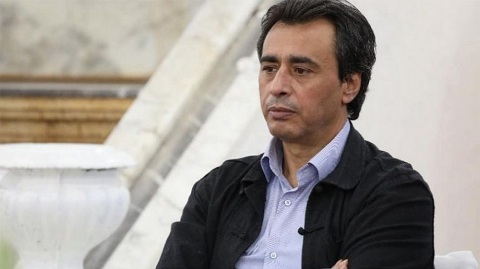The political detainee and leading figure in the National Salvation Front, Jawhar Ben Mubarak, entered an open-ended hunger strike in protest against his remote trial. He is facing charges of “conspiring against state security.” The trial has drawn criticism from human rights organisations, which see it as part of a crackdown on opposition figures in Tunisia.
The defence team announced that Ben Mubarak started his hunger strike on Sunday morning, 30 March, in protest against what they described as an “arbitrary measure aimed at excluding detainees from their own trial and depriving them of their right to defend themselves in the courtroom.”
Lawyer Samir Dilou shared a statement on Facebook, stating that the defence team clarified that “Ben Mubarak rejected the deception that took place during the hearing on 4 March, where it was falsely claimed that he refused to attend the trial. In reality, the opposite is true—he insisted on his right to defend himself and expose the falseness of the charges against him, provided that this takes place in a courtroom, not in a virtual session from his detention facility.”
The defence team also reaffirmed its “absolute rejection of remote trials,” arguing that they “violate fundamental fair trial standards.” They expressed full solidarity with Ben Mubarak in his “struggle for his constitutional right to appear publicly before judges.”
The case dates back to February 2023, when Tunisian authorities arrested several politicians, lawyers, and civil activists. Among them were prominent figures such as Issam Chebbi, Secretary-General of the Republican Party; Abdelhamid Jelassi, former leader of the Ennahda Movement; Ghazi Chaouachi, former minister; Khayam Turki, former leader of the Ettakatol Party; and Ridha Belhaj, former chief of staff of the presidency.
Tunisian authorities accuse these politicians of being involved in “plots to conspire against state security”—allegations that the opposition strongly denies. They argue that the arrests and trials are “part of a systematic crackdown targeting anyone who opposes President Kais Saied.”
Since 25 July 2021, Tunisia has witnessed a sharp decline in political freedoms after President Saied dissolved parliament and dismissed the government—moves his opponents describe as a “coup against democracy,” while he insists they were necessary to “correct the course of the revolution.”
The practice of remote trials for political detainees has raised increasing human rights concerns. The International Covenant on Civil and Political Rights, which Tunisia has ratified, guarantees every accused person the right to a “fair and public trial before an independent judiciary.” This right is undermined by remote trials, as defendants are denied direct interaction with judges and their legal representatives, potentially compromising the fairness of judicial proceedings.
Furthermore, the United Nations’ principles on judicial independence stress the importance of defendants attending their trials in person and having the opportunity to effectively defend themselves—something that is not ensured in virtual hearings conducted from within prisons.


























